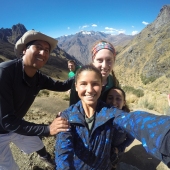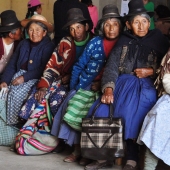
Packing Guidelines and Tips for Travel After Covid-19
How things have changed virtually everywhere in just a few short months since covid-19 snatched the full attention of every single adult on the earth! As international travel gradually returns, people are reviewing their packing list. While it's likely that even citizens from the most remote regions on the planet are aware of masking and hand-sanitizing procedures, what other practices should people be aware of before they begin moving through airports, and other hubs of public transportation? What are some of the less obviouis procedures that all travelers can benefit from?

- One mask is not enough. Carry at least 3 masks as backups. Make sure you have one to wear and one to spare on you at all times. There may be moments when you take off your mask to wash your face or apply sunscreen, or a travel companion may need an extra. Wear a scarf which can serve as an acceptable temporary backup mask in a pinch.
- Although not required at this time, should you travel with a face shield? That's up to you. People with health conditions that make them more vulnerable when exposed to illness may benefit.
- Carry several small containers of sanitizer for your hands, and sanitation wipes to clean surfaces. Bring ziploc bags to dispose of wipes.
- A few pairs of latex gloves may come in handy on occasion. Probably not necessary to wear all the time.
- Bring your own personal thermometer and take your temperature before you go to the airport. Do you really want to find out you have an elevated temperature and you can't board your flight when you checkin or arrive at the boarding gate? In case an airline agent takes your temp and tells you that you can't board due to a fever, it may be helpful to have another thermometer to reconfirm, or dispute the results.
- Find out the airport and airline policy on showing up with a fever or elevated temperature. What is considered high fever? Can you rebook without penalty? What about your travel companions?
- Carry fever suppression medications in case your temperature is elevated due to non-corona virus conditions. Heat exhaustion, prescribed medications and rheumatoid arthritis are some of the reasons your temperature could be elevated. Note: If you travel with a thermometer, keep in mind that the old-fashioned shake down thermometer is filled with hazardous mercury and may not be permitted on flights. (follow this link to read more about traveling with a thermometer)
- Bring your own snacks including cutlery, napkins and empty water bottles to fill with tap-water as you go. If you're averse to the taste of municipal water, you can buy reusable water bottles with built in charcoal filters to improve the taste. (charcoal filters do not remove bacteria or microbes. Follow this link for more information about how to choose the best water filter system)
- Each airline is a separate entity and may have their own procedures for boarding and carrying hand luggage. Know before you go!
- Bring enough clothing to wear and rewear for the entire trip unless you plan to send clothing to the hotel laundry system. Most small hotels will send out to a local laundry service. Bring your own laundry soap if you're picky.
- Declaration of Health. Some airports may ask international travelers to fill out a health statement or provide a pre-written statement affirming that you are in good health and are not displaying any signs of covid. The statement should include your contact info. Bring 5-6 copies each signed individually.
- Keep in mind that policies are changing almost weekly. Be prepared by checking for the latest updates at airports, airlines and hotels, right before you go. We have links to a couple of apps to help you get up to date travel info on our "Post Covid Travel" page.













